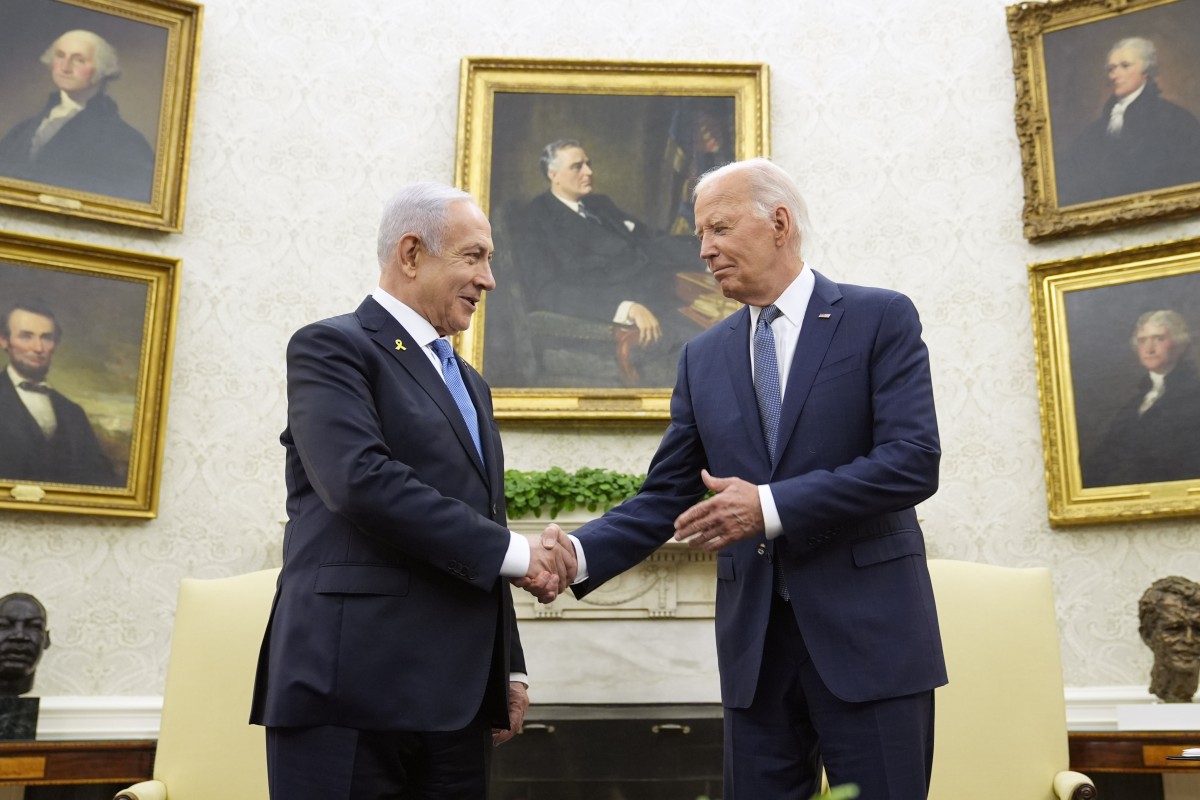This Is How the US Encourages Israel To Attack Lebanon
Several senior Hezbollah commanders have been targeted for attack in the past three months, particularly since Israel launched large-scale strikes on Lebanon Sept. 23. Nasrallah's death provoked a new wave of anger among anti-Israeli forces in the region. Hezbollah, Iraqi militia forces, Yemeni Houthis and others have launched retaliatory attacks on targets in Israel.
Iran's Supreme Leader Ali Khamenei emphasized in a statement on Sept. 28 that Israel has clearly not learned from the conflict in Gaza, and that all resistance forces in the Middle East will stand with Lebanon's Hezbollah, provide it with support, and that “the fate of this region will be determined by the forces of resistance.”
The Associated Press called Nasrallah’s death the “most consequential” targeted killing conducted by Israel in many years and said it will greatly escalate the situation in the Middle East.
Israel has lit a new fuse in the current regional crisis. But as the only country that can have any real influence on Israel, the United States has once again disappointed the international community by its actions at this critical juncture.
‘Nobody Seems To Be Able To Stop Netanyahu’
Over the past week, Israel’s intensified campaign against Hezbollah in Lebanon has largely coincided with debate in the new session of the United Nations General Assembly.
There is widespread concern in the international community that the conflict will escalate into a full-scale war, with many speakers warning that Lebanon must not be allowed to turn into another Gaza.
Imran Riza, U.N. Humanitarian Coordinator in Lebanon, said the escalation of the conflict was catastrophic and that, “[W]e are witnessing the deadliest period for Lebanon in a generation, and many expressed their fear that this is just the beginning.”
Israel’s attack on Lebanon, despite the fears and warnings of the outside world, shows that Benjamin Netanyahu’s government has reached the point of having no fear when it comes to military action in the Middle East.
That approach is boosted by the conviction that no one can stop it. A few days ago, in a French initiative, the United States, France and 12 other countries and organizations jointly called for an immediate 21-day cease-fire between Israel and Lebanon's Hezbollah to begin negotiations and solve the issue diplomatically.
But Israeli Prime Minister Netanyahu quickly poured cold water on the proposal. The prime minister’s office stated that any news of an imminent cease-fire was incorrect. Perhaps to appease the U.S., the prime minister’s office released a contradictory statement a few hours later, recognizing that the U.S.-led call for a cease-fire had been made in coordination with Israel and that Israel was grateful for U.S. efforts. But this was obviously just a gesture because the Israeli army launched intense air strikes on the southern suburbs of Beirut shortly afterward.
In response, the EU's High Representative for Foreign Affairs and Security Policy Josep Borrell told the press that he lamented the inability of the U.S. to rein in Israel. “What we do is to put all diplomatic pressure to bring about a cease-fire, but nobody seems to be able to stop Netanyahu, neither in Gaza nor in the West Bank.”
At this point the United States stunned us all again.
On Sept. 28, President Joe Biden not only called Israel’s targeted killing of Nasrallah a “measure of justice" but also reiterated that “the United States fully supports Israel’s right to defend itself against Hezbollah, Hamas, the Houthis and any other Iranian-supported terrorist groups.”
At the same time, Biden announced that the U.S. and Israel had agreed to provide Israel with an additional aid package totaling $8.7 billion to "help reduce the risk of a wider regional war."
In a lengthy opinion piece entitled “Disastrous Failure: How Biden Emboldened Israel to Attack Lebanon,” Qatar’s Al Jazeera has warned that U.S. failure to end the Gaza conflict and prevent the escalation of the situation in Lebanon is leading the Middle East into all-out war. The article cites a number of expert analyses pointing out that Biden has said from the start that preventing a regional war is his administration's top priority, yet the United States has always provided Israel with unwavering diplomatic and military support. It is America's unconditional support that enables Israel to provoke an apparent all-out war in Lebanon and push the region to the edge of the abyss. In the view of James Zogby, chairman of the Arab American Institute, a U.S. think tank, the Biden administration has always been a "passive enabler" of Netanyahu: "If they don't know it, shame on them. If they do know it, and let it happen anyway, then double shame on them.” Osamah Khalil, a history professor at Syracuse University, questions Biden's diplomatic efforts in the Middle East, saying that they are motivated only by domestic political needs in the run-up to the election: “All this was negotiations for the sake of negotiations." Khaled Elgindy, a senior fellow at the Middle East Institute in the United States, is critical, saying that Washington is the only party that can impose limits on Israel but has refused to do so out of political self-interest. The United States has refused to do it, “on the humanitarian issue, on the killing of civilians, on the cease-fire. So they’re not going to do it to prevent a regional war either. They just keep shifting the goalposts. They’ll redefine regional escalation to mean something else.”

